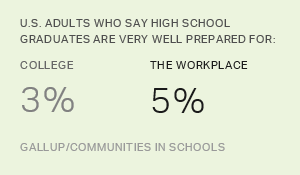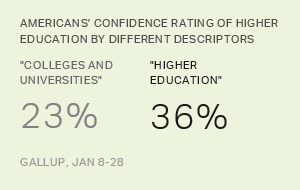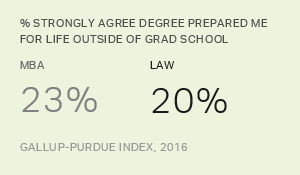People who pursue higher education typically are motivated by career aspirations. In the Strada-Gallup Why Higher Ed? study released in January, for example, 58% of education consumers cited job or career-related motivations as their main reason for pursuing higher education -- by far the highest reason mentioned. However, a new report by Strada and Gallup, From College to Life: Relevance and the Value of Higher Education, shows that only about a quarter of working U.S. adults with college experience strongly agree that their education is relevant to their work and daily lives.
These findings suggest that a disconnect exists between what consumers expect to get from their educational experiences and what they receive. Closing this gap is critical for higher education because people's perceptions of the value and quality of their education are closely linked to how relevant they believe their curriculum is to their work and daily lives.
Relevance Linked to Perceptions of Education Value and Quality
In the new study, "education relevance" is defined by agreement with two key statements from the daily Strada-Gallup Education Consumer Survey:
- The courses you took are directly relevant to what you do at work.
- You learned important skills during your education program that you use in your day-to-day life.
Only 26% of working U.S. adults with college experience strongly agree with both of these statements. Comparing education consumers from both ends of this education relevance spectrum reveals that the more relevant people find their courses to be to their work and daily lives, the greater their belief that they received a high-quality education and that it was worth the cost.
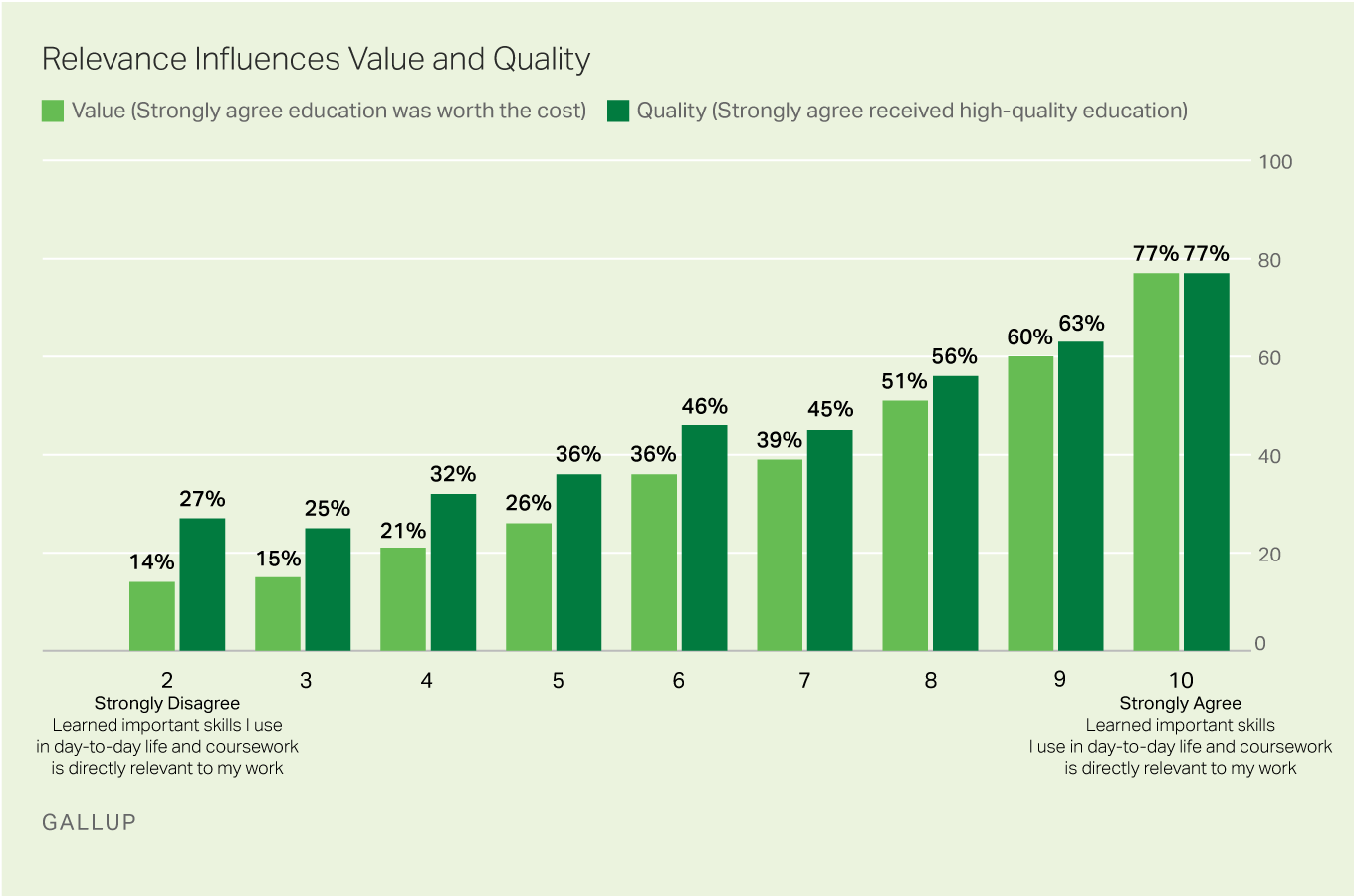
In fact, compared with those who strongly disagree with both statements, consumers who strongly agree that the courses they took are relevant to their work and daily lives are 5.5 and 2.9 times more likely to strongly agree that their education was worth the cost and that they received a high-quality education, respectively.
This finding becomes even more significant when we compare the predictive power of relevance with other common predictors of education quality and value. Relevance is a significantly more effective predictor of how consumers rate the quality and value of their higher education than are commonly referenced metrics such as SAT/ACT math scores, student loan default rates, average cost of attendance, alumni income earnings and graduation rates. The power of relevance as a predictor of these outcomes remains even after controlling for individuals' gender, race/ethnicity, age, income and educational attainment.
Relevance Tied to Individuals' Well-Being
The extent to which consumers find their curriculum relevant to their current lives has an impact beyond educational outcomes -- it is also tied to consumers' overall well-being. Eighty-one percent of those with the highest relevance scores are thriving in their current lives, an 18-point increase over those with the lowest relevance scores. As with quality and value, individuals who rate their curriculum as highly relevant to their current lives are more likely to be thriving in their well-being.
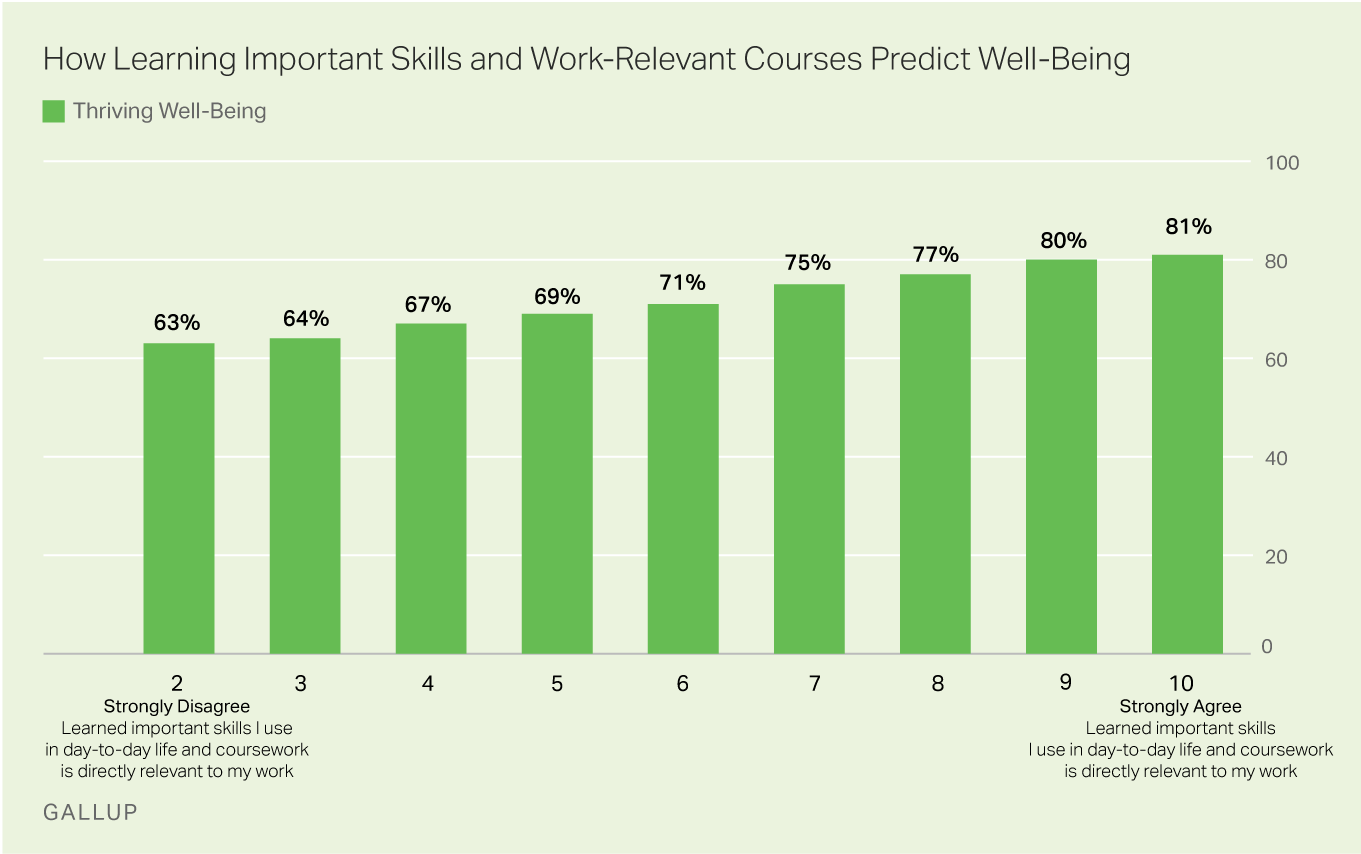
Relevance Can Be Found Along Multiple Educational Pathways
Education relevance is not concentrated in one particular degree level or field of study. Regardless of major or degree type, consumers who complete their studies find greater relevance, value and quality in their education than those who do not complete their program.
The results shift slightly when looking at education level. STEM majors outpace the fields of business, public service (such as education and criminal justice) and liberal arts among two-year degree holders and those with at least some postgraduate work. But at the bachelor's degree level, public service programs provide the greatest relevance, and the results are much more even overall.
These findings suggest that the higher education system does not need to fixate on pushing students toward particular majors or courses of study to obtain relevance. Rather, the goal should be helping students find the right fit for their educational, work and personal aspirations and elevating and delivering relevance across the board.
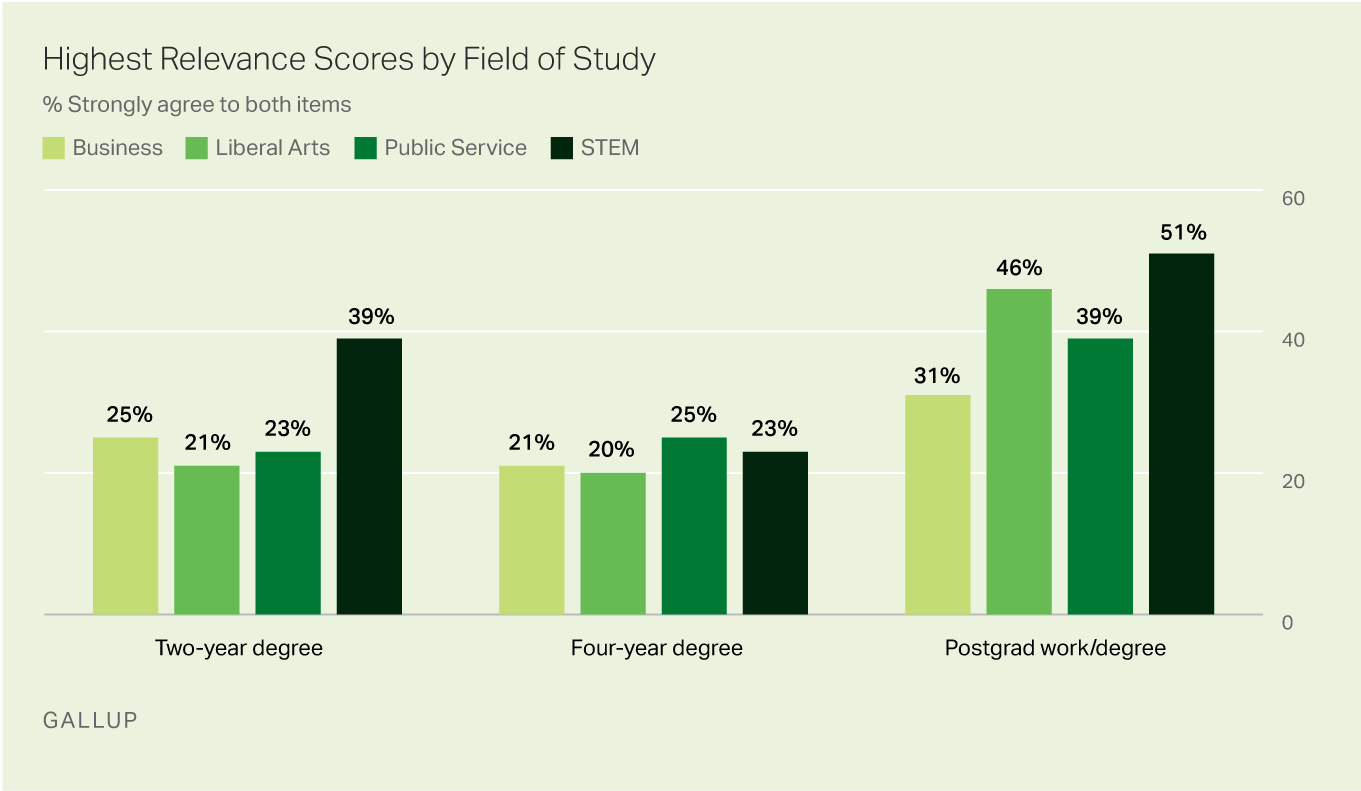
Implications
These findings point to a glaring gap between the importance of relevance and the number of consumers actually experiencing it. Education consumers are very clear on how essential relevance is in finding quality and value in postsecondary educational experiences. This overall importance of relevance may not be surprising to some -- but the failure to deliver more of it, more consistently, should concern all.
Additionally, the importance of career relevance and the gaps that exist in its integration and application are emerging as a consistent theme in surveys among the general population, current college students and alumni -- suggesting that lack of career relevance may be a "root cause" of multiple challenges facing higher education today. The increasing costs associated with pursuing higher education, combined with accelerating changes in technology and the workforce, accentuate the need to assure consumers that they will find relevant curricula, quality and value in all higher education pathways.
Read the full report, From College to Life: Relevance and the Value of Higher Education.

